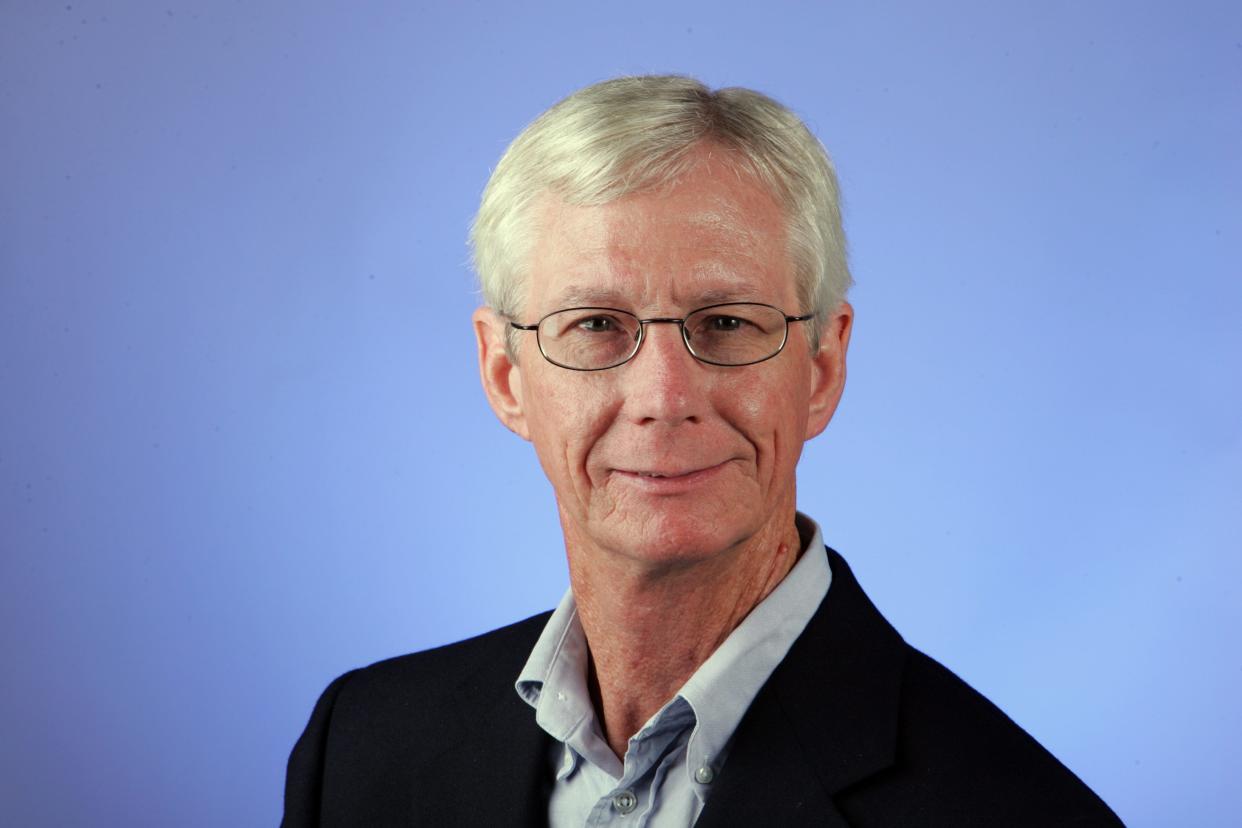The moral heroism of Hutchinson and Cheney

- Oops!Something went wrong.Please try again later.
In Shakespeare’s “Hamlet,” the melancholy prince is contemplating suicide in the famous “To be or not to be” soliloquy. He is held back by the knowledge that it would be wrong and muses, “Thus conscience does make cowards of us all.”
But surely the Bard has it backwards. Fear of transgressing a moral boundary is not cowardice. In my experience, following your conscience usually requires courage because it is usually the harder path to take.
Watching the U.S. House of Representatives’ Jan. 6 Commission hearings, I am struck by how conscience has made what we might call moral heroes of a certain number of people. The latest striking example is Cassidy Hutchinson, who was just 25 years old when serving as White House deputy chief of staff during that period.
It took enormous courage for Hutchinson to testify publicly, taking what is clearly the hottest seat in the country right now, under the white glare of national media and risking the fury of Donald Trump and some of his powerful supporters, not to mention social media vitriol. Given what happened on Jan. 6, 2021, her very life might be at risk. Some former Trump senior aides are doing their darnedest to avoid sitting in that chair. So, what made Hutchinson do it?
Hutchinson was subpoenaed by the committee in November after her former boss, Chief of Staff Mark Meadows, refused to cooperate. It’s fair to say that the committee saw Hutchinson as a lever to pressure or force Meadows to come forward. He has a criminal contempt referral pending and Hutchinson faced a choice – refuse the subpoena and stand with her former bosses (up to and including Trump) or testify.
The American Heritage Dictionary defines conscience as “the faculty of recognizing the distinction between right and wrong in regard to one’s own conduct,” or “conformity to one’s own sense of right conduct.”
Some might say that Hutchinson wasn’t following her conscience, she was only forced to testify under threat of indictment. In other words, she didn’t have a choice. But I suspect if she had felt strongly that loyalty to Trumpism was paramount, she would have defied the subpoena. Something told her that what Trump did on Jan. 6 and the events that followed were wrong. However reluctant she may have been, she chose to testify, to tell the truth, in spite of the personal cost.
A cynic might say that Hutchinson is only doing it for the spotlight, the acclaim. Maybe she’ll get a book deal. But as Oscar Wilde wrote, a cynic is someone who knows the price of everything and the value of nothing.
If there is another moral hero in these hearings it is surely Liz Cheney, the congresswoman from Wyoming and the committee vice-chair. Despite her conservative credentials, Cheney has been unrelenting in her questioning and her pursuit of the culprits of the January 6 insurrection. For her trouble, she has been the target of the worst kind of verbal attacks and threats, political, personal and even physical. Why put yourself through that kind of abuse?
Cheney has been clear from the beginning that her opposition to Trumpism is rooted in a single conviction, that in America no one is above the Constitution. It may well cost her the seat she holds in Congress, but she will certainly go down in American history as a courageous patriot.
Conservatives used to talk a lot about character. In the 1980s and especially during the Clinton years of the 1990s, it was all the rage on the right. The Moral Majority of the Rev. Jerry Falwell thundered loudly that our politicians had to be people of good character. William J. Bennett, a devout Catholic and secretary of education under Ronald Reagan, published a book in 1993, “The Book of Virtues: A Treasury of Great Moral Stories,” that was intended as a corrective to what he saw as moral laxity. That era seems almost quaint now. One can only imagine what Bennett would say about Donald Trump.
Or, on the other hand, what he would say about people like Cassidy Hutchinson and Liz Cheney. If America is truly to recover some sense of moral balance, conservatives – and all of us, really – would do well to imitate those who have followed their consciences in spite of the cost.
Cary McMullen is a retired journalist and the former religion editor of The Ledger.,
This article originally appeared on The Ledger: The moral heroism of Hutchinson and Cheney

